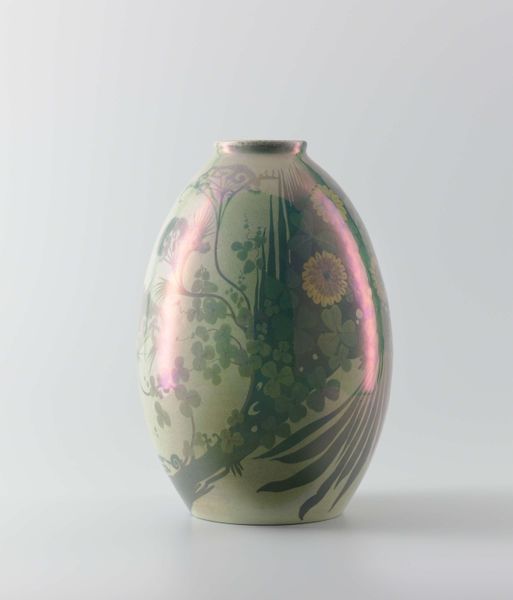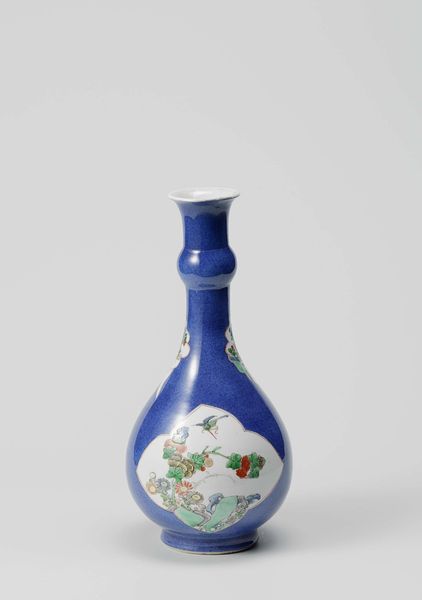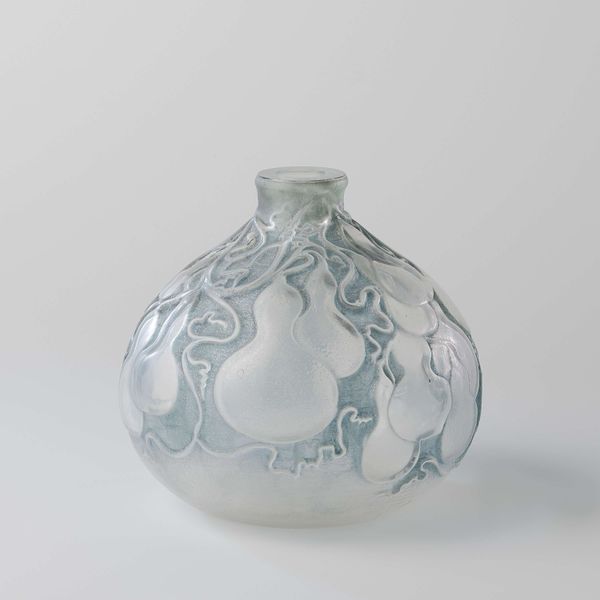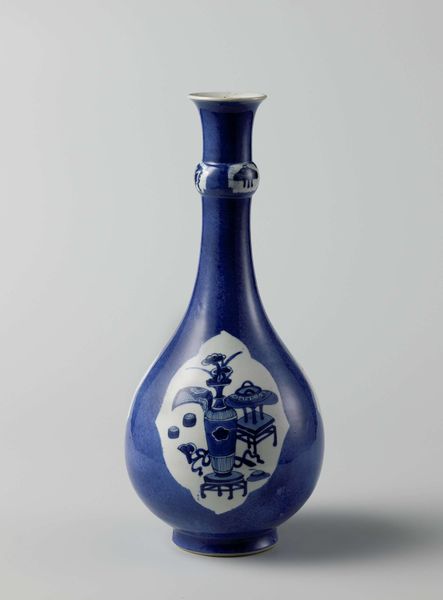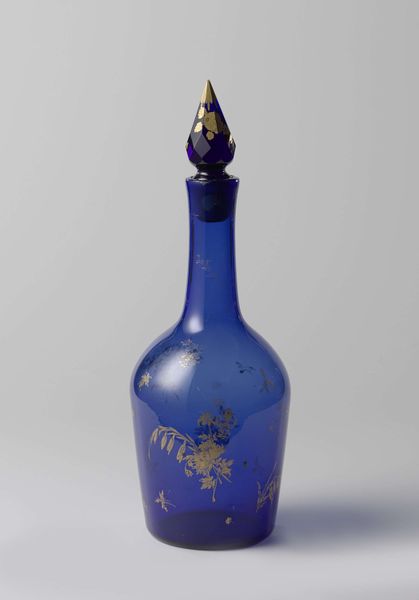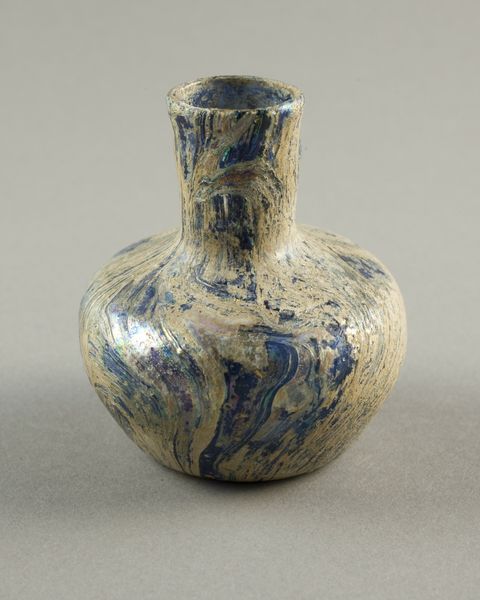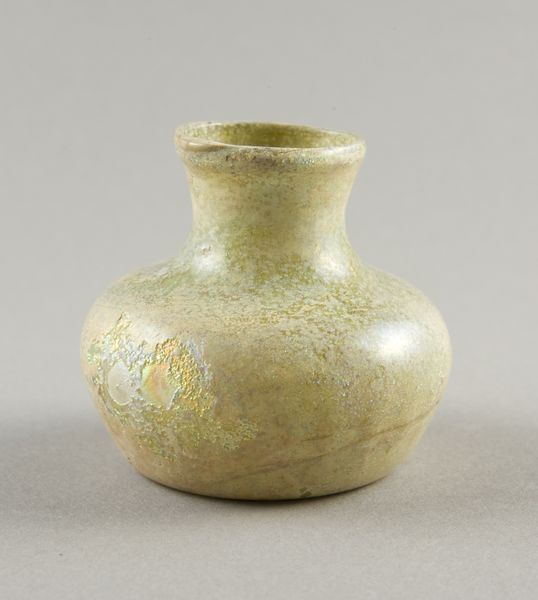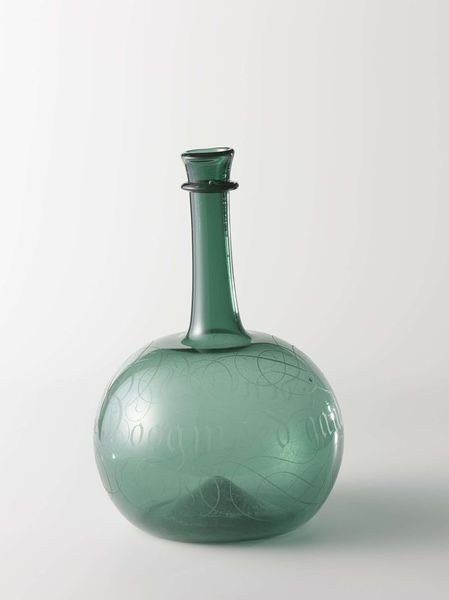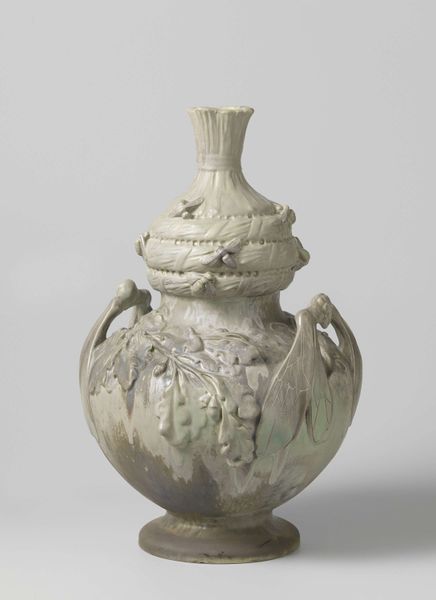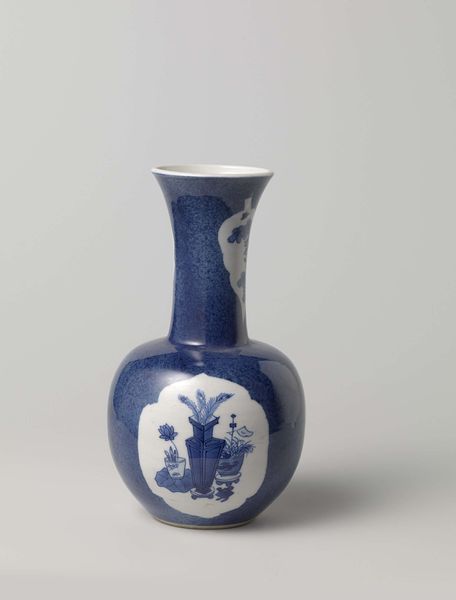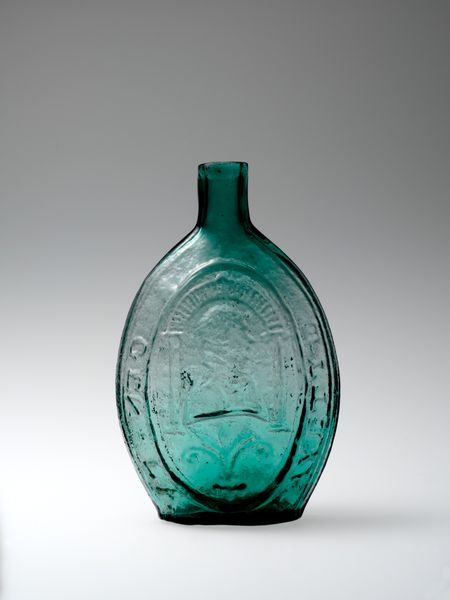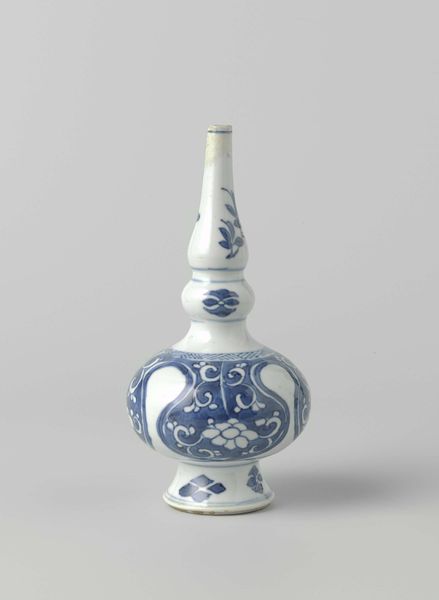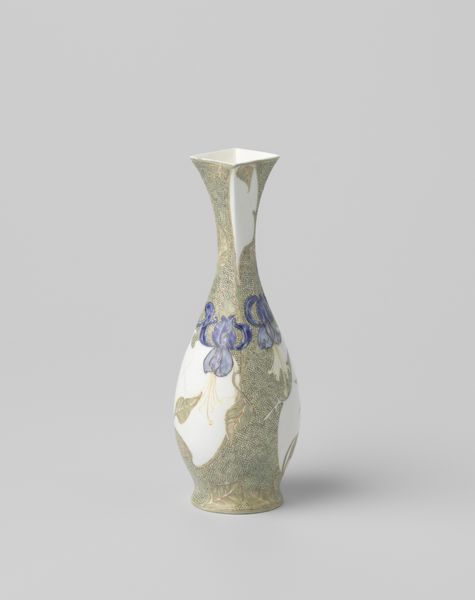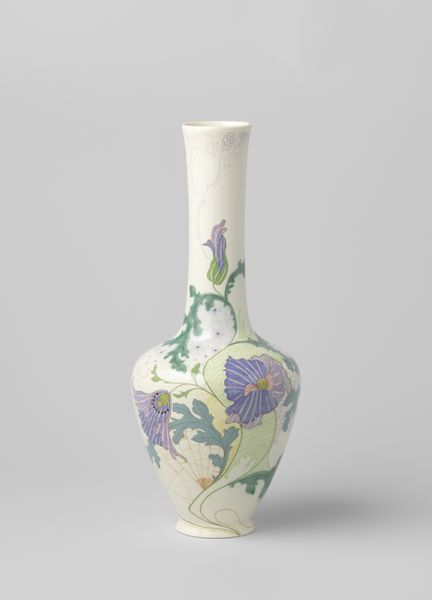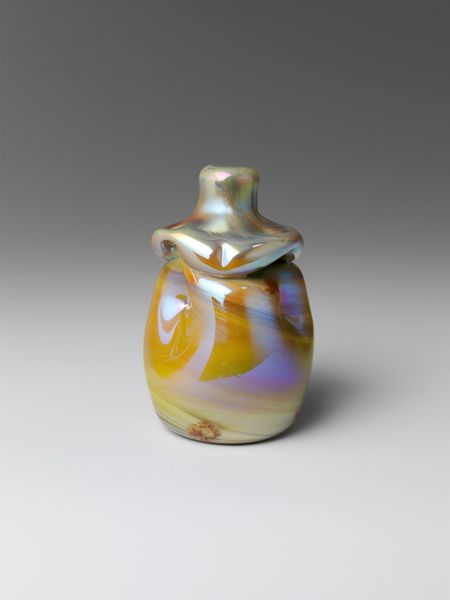
ceramic, sculpture
#
art-nouveau
#
asian-art
#
ceramic
#
stoneware
#
sculpture
#
ceramic
Dimensions: height 20.8 cm, diameter 19.2 cm
Copyright: Rijks Museum: Open Domain
Editor: So, here we have a ceramic vase, made around 1910 by the Tegel- en Fayencefabriek Amphora, called "Vaas beschilderd met een draak"—that's "Vase painted with a dragon." I find its Art Nouveau styling kind of… kitschy, maybe? How do you interpret this piece? Curator: The kitsch factor you identify is interesting, particularly when juxtaposed with the vase’s clear embrace of Asian artistic motifs. We have to consider how European artists at the turn of the century were appropriating and reinterpreting non-Western aesthetics. In this light, we might ask: does the vase become a symbol of colonial attitudes, where other cultures become mere fodder for European tastes? Editor: Oh, that's a really interesting angle. I hadn't thought about it like that, seeing it as appropriative. But, doesn't art often borrow from different cultures? How do we decide when it crosses a line? Curator: Exactly! And it's not simply about borrowing; it's about power dynamics. Was the dragon figure rendered respectfully, or did it perpetuate harmful stereotypes? Understanding the historical context—the political and social realities of the time—helps us grapple with these questions. Also, who was this work made *for*, and how was it marketed to its consumers? Editor: I see, so we have to consider not just the image itself, but its historical relationship to European colonialism and consumerism. That definitely shifts my initial impression. Curator: Absolutely. Examining art through this lens opens a vital dialogue, forcing us to confront uncomfortable truths and ultimately leading to a more nuanced appreciation of art's complexities. What new questions does it spark for you? Editor: Well, it makes me want to research Amphora more and see what other pieces they made, and who bought them. I'd never really considered the economic factors so closely. Thanks!
Comments
No comments
Be the first to comment and join the conversation on the ultimate creative platform.
